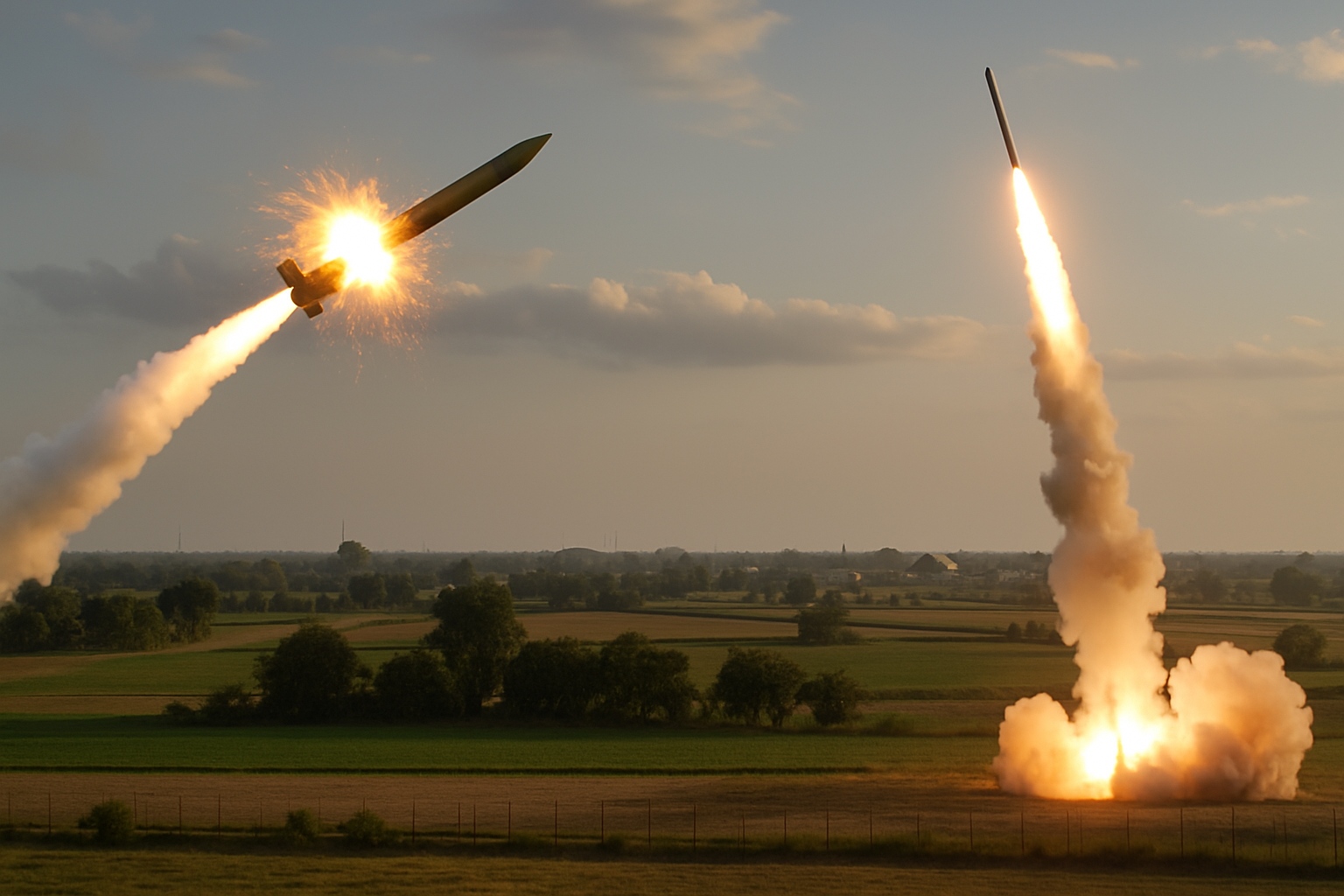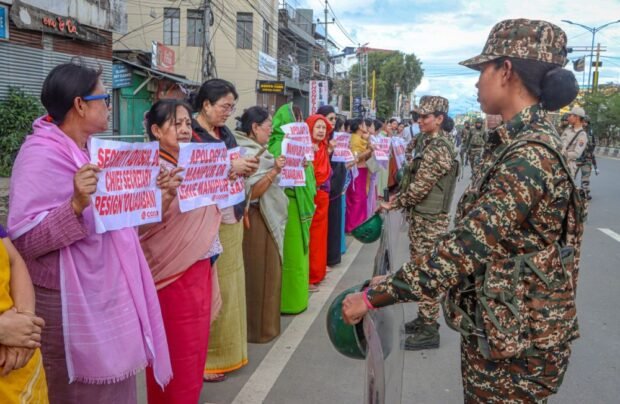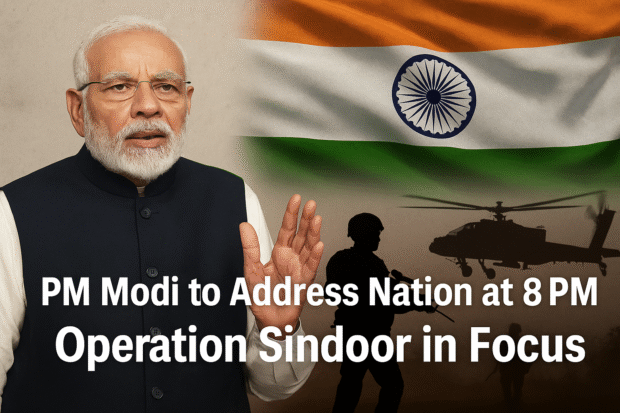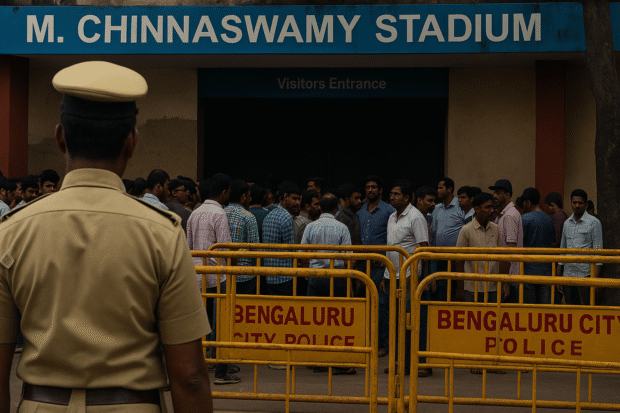
In a significant show of India’s defense capabilities and preparedness, an attempted air strike by Pakistan was successfully thwarted over Sirsa in Haryana. The incident, which has raised concerns about escalating tensions in the region, involved the reported use of a Pakistani Fatah-II Missile, a guided rocket system with the capability of hitting strategic targets deep within enemy territory. Indian defense systems acted swiftly, preventing what could have been a devastating blow near key defense and civilian infrastructure.
The Incident: Pakistani Missile Intercepted
On the evening of [insert date if known], defense radars picked up unusual aerial activity near the Sirsa Air Force Station in Haryana. Located strategically in northern India, Sirsa holds considerable importance due to its proximity to the Pakistan border and its role in the Indian Air Force’s defense architecture.
The missile, believed to be a Pakistani Fatah-II Missile, was detected approaching Indian airspace at high speed. The Fatah-II, an advanced variant in Pakistan’s missile arsenal, is known for its extended range of approximately 400 km and precision targeting capabilities. Sources within the Indian military confirmed that the missile was neutralized before it could penetrate deeper into Indian territory or cause any damage.
Role of Air Defense Systems
The Indian Air Force’s surveillance systems, stationed across key locations including Delhi, Haryana, and Punjab, played a crucial role in the early detection and neutralization of the threat. As the missile approached Sirsa, air defense units were immediately activated. According to defense sources, the threat was intercepted using state-of-the-art counter-missile systems, showcasing India’s preparedness against modern missile warfare.
This interception is being hailed as a major success for India’s growing anti-missile capabilities, which have been developed and strengthened over recent years through indigenous systems like the Akash missile and foreign technology partnerships.
Significance of Sirsa and Nearby Areas
Sirsa, located in the western part of Haryana, is home to an important Indian Air Force base. It serves as a frontline air station capable of launching defensive and offensive operations in case of conflict. An attack on Sirsa would not only have threatened military installations but could also have impacted Delhi, which lies only around 250 kilometers away.
The capital, with its dense population and political significance, remains a key target in the event of cross-border hostility. This attempted strike underscores the ongoing threat that looms over critical urban centers and military zones.
Political and Military Reactions
Following the attempted strike, officials from the Ministry of Defence held a high-level meeting to assess the situation and determine further actions. India lodged a strong diplomatic protest with Pakistan, calling the attempted missile incursion a “reckless provocation and violation of international norms.”
Military analysts have termed this move as part of Pakistan’s strategy to test India’s defense response time and preparedness. However, India’s swift interception has sent a clear message about its zero-tolerance stance towards any breach of national security.
Home Minister Amit Shah and Defence Minister Rajnath Singh both issued statements assuring the public that India’s armed forces can protect the nation against any external threat. “We have full faith in our defense forces. Every attempt to harm our nation will be met with a stronger response,” Singh said.
Pakistan’s Denial and International Concerns
Unsurprisingly, Pakistan denied the allegations, stating that no such missile was launched from its territory. However, international defense analysts and satellite imagery data indicate a missile trajectory that originated from Pakistani territory, strengthening India’s claims.
The incident has garnered attention globally, with international observers warning against the growing tension between the nuclear-armed neighbors. The United Nations called for restraint and dialogue to prevent further escalation.
Implications for Regional Security
This attempted air strike is a stark reminder of the fragile peace in South Asia. With both nations possessing advanced missile capabilities, even a single miscalculated move can result in large-scale destruction. The successful interception over Sirsa, Haryana, not only averted a possible disaster but also exposed the volatile nature of India-Pakistan relations.
The involvement of a Pakistani Fatah-II Missile, specifically, has raised alarms within the strategic community, as it indicates Pakistan’s willingness to use high-precision, long-range missile systems in potential offensive actions. Such weapons are not traditionally used for skirmishes or tactical maneuvers but are rather strategic tools of warfare, capable of hitting high-value targets.
Moving Forward
India has increased aerial surveillance and radar monitoring across the northern belt, including Haryana, Punjab, and the National Capital Region. In Delhi, security agencies are on high alert and coordination among air defense systems has been intensified.
The government is also reviewing protocols for civil defense readiness in the event of future escalations, particularly in regions near border states like Haryana.
While the immediate threat has been neutralized, this event has once again highlighted the critical importance of constant vigilance, upgraded defense infrastructure, and robust international diplomacy to prevent conflicts from escalating into full-blown wars.
Conclusion
The thwarted air strike attempt using a Pakistani Fatah-II Missile near Sirsa, Haryana, serves as a reminder of the ever-present tensions between India and Pakistan. As India bolsters its defenses and diplomatic channels stay active, the international community watches closely. The safety of cities like Delhi, and the strategic relevance of locations like Sirsa, make it imperative for India to remain on high alert. In the end, the quick and effective response of Indian defense forces not only safeguarded national interests but also sent a clear signal: India is ready and resilient.
Read: Operation Sindoor Continues: India-Pakistan Conflict Reignites Amid Cross-Border Strikes


















Be the first to leave a comment